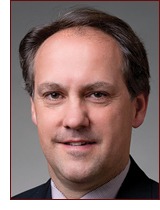August 2013: Federal Construction
Words: Dan Kamys
 Federal Construction
Federal Construction
 By John G. Allen
By John G. Allen
Ever lost a bid on a government job by just a few dollars? Competition for government jobs and maintaining compliance with government regulations are tougher than ever. Masonry companies that work on government jobs may be missing an opportunity to reduce payroll costs on those projects, while providing valuable benefits such as retirement plans and health insurance for their workers.
Even companies that do a small percentage of projects covered by prevailing wage laws can realize significant savings by using fringe dollars in the way the law intended. With the deadline for Affordable Care Act (healthcare reform) compliance approaching, there’s never been a better time to consider a prevailing wage benefit plan if you work on government contracts.
Federal construction contracts in excess of $2,000 are subject to the Davis-Bacon Act, which requires payment of locally “prevailing wages,” including the “anticipated cost of prevailing benefits.” Generally, this is expressed as a per-hour wage and per-hour cash equivalent value of benefits, and often is based on a union scale. Prevailing wages are set by the Department of Labor and are included in the bid specifications of covered contracts. Many states and the District of Columbia have their own prevailing wage laws, often referred to as “little Davis-Bacon Acts.”
Many contractors pay the fringe benefit portion of the prevailing wage as additional cash wages, believing it’s the easiest way to comply with the law. But allocating the fringe amount to a bona fide benefit plan or plans results in significant cost savings, and can dramatically improve a company’s bottom line. Benefits that might be included in a bona fide benefit plan are retirement, medical, dental, vision and life insurance plans.
The reason contractors save money by offering a bona fide benefit plan is that, when the fringe portion of the prevailing wage is used to provide benefits for hourly workers, this amount is not subject to payroll costs such as FICA, FUTA and SUTA, general liability and, in most states, workers compensation insurance.
Although there are variances in rates, conservatively these taxes represent an additional 25 cents on each dollar paid as cash wages. Here’s an example of how much can be saved by removing these dollars from payroll:
Sample Calculation
Say the company has 15 employees doing prevailing wage work. These employees work about 1,000 hours each per year. The fringe amount above the base rate is $10/hour, and the average approximate additional payroll cost, when paying fringe dollars as cash wages, is 25 percent.
- 15 employees X 1,000 hours = 15,000 total hours
- 15,000 hours X $10 = $150,000 in additional payroll
- $150,000 X 25% = $37,500 company savings
- Savings realized over five years: $187,500
- Savings realized over 10 years: $375,000
Contractors searching for ways to cut costs and improve their chances of winning bids on government jobs should consider implementing a bona fide benefits plan. It provides valuable benefits for hourly workers by providing them with a way to save for retirement, as well as the protection offered by medical, vision, dental and life insurance. And, regardless of economic conditions, it makes good business sense to reduce costs and sharpen your competitive edge when bidding on public works projects.
With ACA deadlines quickly approaching, it makes more sense than ever for companies working on government contracts to use the fringe to provide major medical coverage for their employees. For prevailing wage contractors, the funds to purchase coverage for employees are right there, included in the fringe. Starting in 2015, employers with more than 50 full-time employees will be required to provide health insurance for their workers. Companies that fail to comply will face penalties.
Even prevailing wage contractors with fewer than 50 employees should consider using the fringe to provide health insurance for their hourly workers, because the savings on payroll burden can be passed on as leaner, more competitive bids. That results in increased chances of winning contracts. Choosing to offer health insurance also makes sense from an employee-relations standpoint in terms of being able to attract and retain talented workers.
Plus, providing benefits is the right thing to do. Coverage provided with fringe dollars is paid with pre-tax money, and employees who are not covered at work must be underwritten on their own and pay potentially higher rates with their after-tax dollars. You have fringe dollars specifically earmarked to provide benefits, and significant payroll and insurance costs savings when you do.
Return to Table of Contents